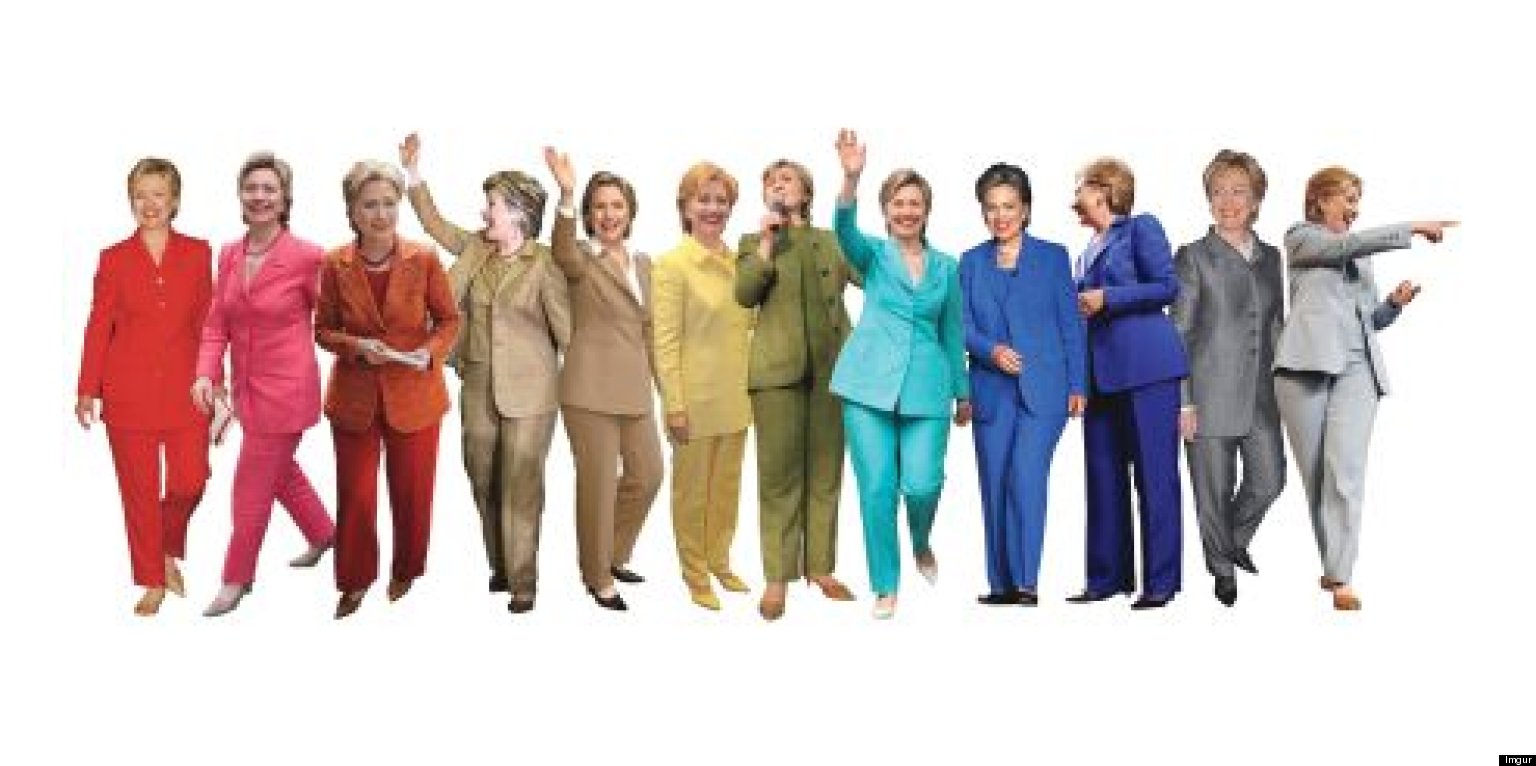
I’m calling bullshit on Hillary.
Not on Hillary herself. On the media’s portrayal of her.
“The private Hillary is as warm and charming a woman as anyone could conjure up. The public Hillary sometimes seems brittle, with the judgment of a raging rhinoceros,” writes fellow syndicated columnist Ann McFeatters.
I don’t mean to pick on McFeatters. Everyone (in the media) says the same thing: Hillary Clinton is so awesome one-on-one or maybe one-on-six, in private. For example, Mark Leibovich says she’s “quite human and funny” in private.
She’s been a high-profile national politician for more than 20 years. Why hasn’t she figured out how to charm the American public on TV?
These repeated accounts of Hillarity are less than reliable, issued as they are by the kind of people in a position to have met Hillary Clinton, which pretty much guarantees that they’re boring and bland and not very smart — the kind of people who think Obama means well and that Jon Stewart is a laff riot.
But let’s say it’s true. Who will we be voting for or against next year — Public Goofus Hillary or Private Gallant Hillary?
If you evaluate presidential candidates based on how much fun they’d be to share a drink or six with, Hillary presents a trust dilemma. Who wants to throw back cold ones with greedy tone-deaf Public Hillary, worth $20 million if she’s worth a dime, as she whines that she’s not “truly well off“?
But what if it’s true that Private Hillary rolls salt-of-the-earth style, wickedly funny and cool? Should you take a leap of faith, taking the word of the same press corps that gave us the Iraq War, and support the real — albeit secret and seen by few — Hillary?
Perhaps you’re one of those voters who views the presidency as a role to fill, and presidential elections as a casting call. For you, the POTUS is America’s representative on the world stage. He or she has to look — and feel — presidential. Your ideal prez would exude FDR’s charisma, wear Reagan’s suits, have Obama’s calm and JFK’s (or Mitt Romney’s) hair.
For you image voters too, Private vs. Public Hillaries are a problem.
Public Hillary is a nonstarter. She embodies the George W. Bush school of bull-in-a-China-shop diplomacy: the last thing we need is another war, one caused by her deployment of the same nasty exasperated expression she wore at the press conference where she tried to talk away her destruction of four years of electronic archives of the foreign policy history of the United States.
On the other hand, Loveable Private Hillary could bond with Vladmir Putin and other troublesome world leaders, banging out peace treaties and favorable trade agreements at karaoke bars from Pyongyang to Moscow. But what if Private Hillary is as much of a chimera as Saddam’s WMDs? Public Hillary Who Is Also Private Hillary could piss off so many old enemies, and make so many new ones, that we’d be fending off ICBMs in no time.
Or maybe you’re like me, an issues voter. As long as he or she supports the right policies and fight against the bad ones, you don’t care if a politician drinks, or womanizes, or drinks and drives a woman to the bottom of a pond. Show me the bills, dammit!
If you’re in it for substance over style, the Tale of Two Hillaries is even more difficult to tease out.
New York Times columnist Maureen Dowd calls Hillary a “feminist icon wallowing in regressive Middle Eastern states’ payola.” I’ll focus on the “feminist icon” part: what, aside from being a woman, has Hillary Clinton done for women? She has never proposed a significant piece of women’s rights legislation. Her 2008 presidential bid marketed her, not as a woman, but as a Margaret Thatcher-style “Iron Lady,” a man in woman’s clothing. Only now, echoing Obama’s double-win on the strength of historical symbolism, is she planning to emphasize the plight of girls and women in a patriarchal society.
On policy, Public and Private Hillary blend together. Not because she’s integrated. Because she’s a mess of contradictions: a liberal who supports wars of choice, obsessed with her own privacy as she runs interference for the NSA.
Even if Gallant is the real Hillary, and all that Goofus stuff is either her cynical attempt to work the system in a man’s world or reflects a personality unable to connect with people in large groups, I can’t vote for her.
She supports war and drones and the NSA. Who cares if she’s a barrel of laughs behind closed doors? So was Stalin.
Anyway, my invitation to hang out with her appears to have gotten lost in the mail.
(Ted Rall, syndicated writer and the cartoonist for The Los Angeles Times, is the author of the new critically-acclaimed book “After We Kill You, We Will Welcome You Back As Honored Guests: Unembedded in Afghanistan.” Subscribe to Ted Rall at Beacon.)
COPYRIGHT 2015 TED RALL, DISTRIBUTED BY CREATORS.COM


 Whereas Bush and Republican party operatives created a private domain,
Whereas Bush and Republican party operatives created a private domain, 

 Clinton is too far to the right and have never forgiven her for her positions on free trade agreements and voting in favor of the invasion of Iraq in 2003 keeps saying they want Massachusetts senator and consumer advocate Elizabeth Warren. Pictured at left, she would be challenging the former first lady from the Left. But Warren has repeatedly said she isn’t running, her fans don’t have much money, and her actions – well, more like her inaction in not showing up in key primary states like Iowa – support her
Clinton is too far to the right and have never forgiven her for her positions on free trade agreements and voting in favor of the invasion of Iraq in 2003 keeps saying they want Massachusetts senator and consumer advocate Elizabeth Warren. Pictured at left, she would be challenging the former first lady from the Left. But Warren has repeatedly said she isn’t running, her fans don’t have much money, and her actions – well, more like her inaction in not showing up in key primary states like Iowa – support her 




 Finally, there’s two other governors, both from the Midwest: John Kasich of Ohio and Scott Walker of Wisconsin.
Finally, there’s two other governors, both from the Midwest: John Kasich of Ohio and Scott Walker of Wisconsin.



